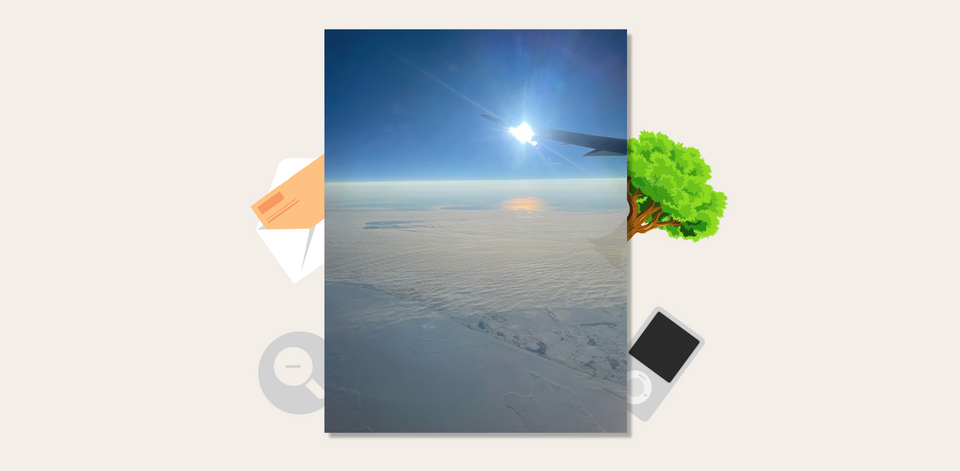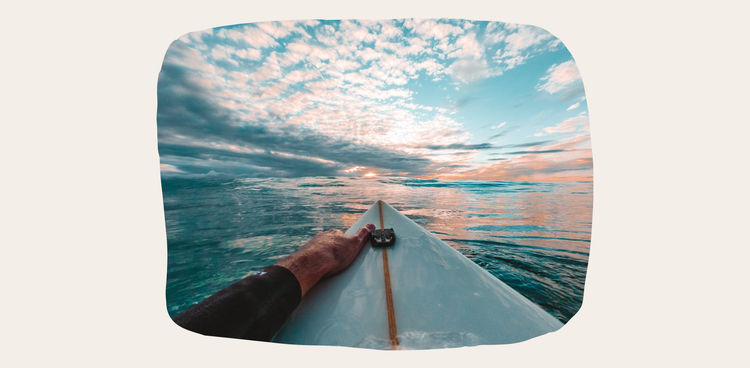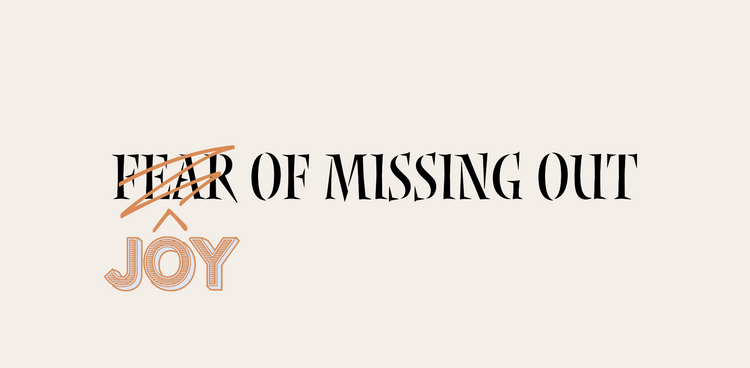You've come so far: The Power of Zooming Out

On the 19th of May, in the window seat of a plane en route from Tokyo to Frankfurt, I wrote a letter to my 17-year-old self. It had been almost exactly 5 years since I graduated High School. To commemorate that milestone, I tried to explain to tiny Johannes what the next five years will bring.
The good (studying psych is so much more fulfilling than school), the bad (but your first semester will be spent in a hospital bed, not a lecture hall) and everything in between.
As the story unfolded, success after challenge, falling hard after flying high, over and over again, I kept coming back to this one thought:
Isn’t it hilarious how zoomed-in we live our lives?
There was something about seeing all of the big and small lessons, black on white. In the midst of a crisis, I was fully convinced that this is the worst thing that could’ve happened to me. With the scale being small enough, these problems felt like all-consuming, life-altering, fate-deciding challenges.
But I lived to tell the story. Today, it’s nothing but a fascinating experience that shaped my trajectory. That made me who I am today. On that 5-year timeline, a challenging period following a season of bliss seemed like the most natural thing in the world.
I would've felt like an idiot to sit there and complain that I didn’t experience smooth sailing for 5 years straight. Even on a timeline of a year, it seems reasonable to expect better weeks and worse weeks. But those worse weeks have to happen at some point. And once you’re there, it seems like the world is cruel and life is unfair? Doesn’t really add up, right?
On a microscopic level, the current problem feels monumental. Expanding the scope, we get to see so much more.
So what do we get to see? Let’s take a rather humbling conversation I had two weeks ago in a steam room (of all places).
The Age Card
At the peak of my anxiety, there I sat complaining to my main man Sam about my inability to make a decision about my future. Choosing between “make coffee and surf” and “join a start-up and go all-in” felt like the most pivotal decision I’d ever have to make (Fun Fact: I ended up choosing neither). These spirals had been eating me up for weeks. I was zoomed all the way in. Like your phone on 10x, all I got was wobbly, pixelated tunnel vision. But then Sam said these wonderful words:
“I hate to play the age card here, man.”
But he played it - and he had every right to. For context: The man’s about 5 years older than me. After moving cities and/or countries about once a year for his first 17 years on Earth, he decided that a gap year wasn’t quite it. Instead, he took the legendary gap decade, living just about everywhere and doing tons of amazing jobs along the way (Another Fun Fact: He’s planted 700,000 trees in his life). But back to the age card. To force some perspective into my overloaded head, he told me about:
- the time he had to decide between becoming the youngest-ever assistant manager at a four-star hotel on a tropical island and planting trees in Canada,
- the time his then-girlfriend’s loaded dad offered to buy him a property so he could live his dream of running a hostel
- the time he was offered to run a bar on the Sunshine Coast but decided to move to Brisbane to study psychology because he’d met a friend that wouldn’t shut up about it (Fun Fact 3: That’s me 🙃)
His point: Every time, it felt like that was the decision. The one to seal his fate. “And now I can barely remember them”, he finished his lecture. So there I sat, all steamed up, feeling like 17-year-old Johannes again. I’d just been schooled.
The Right Decision
He was right. For evidence, I just had to think back to my letter. How many decisions I had made since 17, thinking they’d be the one. How little I knew at each stage. How I just proceeded to make it work somehow. I hope you don’t mind me turning this into a “quote-my-friends”-marathon, but I’d love to share how beautifully my good friend Liam put this idea the day before the flight:
Don’t worry about making the right decision, because no matter what you choose you’ll make it right.
When you’re doing something new, there’s no way to tell before if you’re doing the right thing. Don’t take it from my friends though - Take it from someone who did something really new. Just stay with me here for a moment - this tangent will make sense shortly.
Tony Fadell is the guy that made the iPod. After having his idea shut down at Phillips, he joined Apple to proceed and change the music industry forever. It’s hard to imagine now, but there was a time before digital music. Before the iPod, music was physical. CDs were the new, cool thing. But this guy had an opinion: 1000 songs in your pocket is cooler than a Walkman & CDs. But here’s the thing: Opinion is all he had. There was no data available about what people expect from a digital music player simply because there was no digital music player. So how do you make the jump from Version 0 (it doesn’t exist) to Version 1 (now it does)?
You have to understand that especially V1, you need to be able to articulate those opinion-based decisions and you need to own them. […] If you fail with some of them, you didn't get it right, you then own them and fix them and move on, right? Version one of the iPod wasn't perfect. […] We got a lot of opinion-based decisions wrong. But you go through it because, for V2, you have data on those original opinions. You can move forward with the evolution. But at the revolution stage, opinions, opinions, opinions, no data.
Great advice for people trying to design the next iPod, but what does that have to do with the anxious dude in the steam room? Well, let’s keep the quoting going. This time, it’s what I wrote in my journal the day after the steam room:
You’re purely going off opinion because that’s all you can go off. There’s never been a life of Johannes Gronimus lived, so you can’t model it off any data. Sure, you could model it off others - and to a degree, you’re bound to anyways. But mirroring someone else’s life would be pointless - there’s already someone living it.
The simple point here is that there’s nothing wrong with this level of uncertainty. If you want to live an authentic life, it’s inevitable. Looking back over the past five years, the process was clear as day. Every decision made on a hunch and then improved upon as I learned more. In 2018, I had no data on studying psychology - I’d never studied. In 2022, I had no data on moving to Australia - I’d never moved across the globe. All of these big decisions, based purely on opinion and adjusted afterwards. I’ll never know if I made the “right” decisions, but always made them right. Somehow.
Zooming Out
So to finish it off, here’s a little tool I learned from my good friend Julius. While travelling, there’d be numerous moments where he’d randomly become quiet and grin contently. When this happened, I knew he was zooming out (Fun Fact Four: This is the phrase that sparked this post). He took a step back from the current situation and acknowledged the ridiculousness of it all.
It’s an antidote for our pesky tendency to get used to things. On a five-hour car ride, he'd randomly switch from trying to figure out about where we'd sleep tonight to a content "Man, we're sleeping in a car somewhere in Western Australia". When I left my pride and joy of a coffee maker at a hostel, he cheerfully invited me to consider the fact that my coffee maker now resides on Waiheke Island, New Zealand. Try explaining that to 17y/o Johannes.
In my experience, this applies to the tiny day-to-day hassle (like losing a coffee maker) as it does to the big-time life-changing problem. By simply broadening the timeline, leaving the microscope behind, you gain a little more perspective. Acknowledging how far you’ve come, how many small and big challenges you overcame to get there, how monumental they all felt. But if you're here reading this, you lived to tell the story.
I’ll leave you with the story that lead to that letter on the plane. And a cheeky last quote. But first, the story.
On my way from the Sunshine Coast to Germany, I had a layover in Sydney. Pretty common for international flights coming in and out of Australia. Over the past 18 months, I’d been here a couple of times. After graduation, I’d even spent 6 weeks in & around Sydney. So in the spirit of getting used to stuff, I was genuinely considering to just stay at the Airport for 8h to save the 40$ train fare to the city. Luckily, I decided to go. I did some journaling at the Opera House, pushed my 30kg luggage through the Botanical Gardens and then ended up at Darling Harbour for sunset. All very standard Sydney stuff.
And then, this ship passed by. “Sydney 2000” was its name. Nothing new, right? Obviously, I’m in Sydney. But at that moment, something clicked in me. I started chuckling like a maniac. Seeing it happen with Julius often enough, I knew what happened: I zoomed out.
Somehow, seeing that ship brought an incredible revelation to my mind: “You’re in Sydney, Australia!” Not from the exhausted perspective of the guy that just spent hours pushing 30kg through a familiar city, preparing his knees for a 10-hour flight to Tokyo. But from the perspective of the guy that had dreamed about this for 2 years during COVID. Or from the perspective of the guy that was about to graduate High School with no clue what he’ll study. To these dudes, the fact that I was sitting in Sydney, Australia on my way to Tokyo was absolutely mind-blowing. The fact that I had taken this for granted seemed ridiculously, incredibly dumb & entitled.

Absolutely fascinated by this idea, I decided to see what else I’d started to take for granted. All the things that would seem incredible to my 17-year-old self. So a few hours later, I boarded that plane determined to write that letter.
So if you’re still with me, please do me a favour: Take a moment to acknowledge how far you’ve come. How much happened since the 17th of July, 2018. Good, bad and in between. Maybe even take 30 minutes to write that letter. Explain to yourself the story of the last five years. In that zoomed-out scope, maybe your current struggles seem a little less monumental.
PS: That ending got a little too serious. Plus I’m on a quoting frenzy. So one last nugget of gold from Sam, shouted my way while I was struggling to surf waves far too big for my skill level:
Heroes are made in the fires of ‘What the fuck am I doing here?’




Comments ()